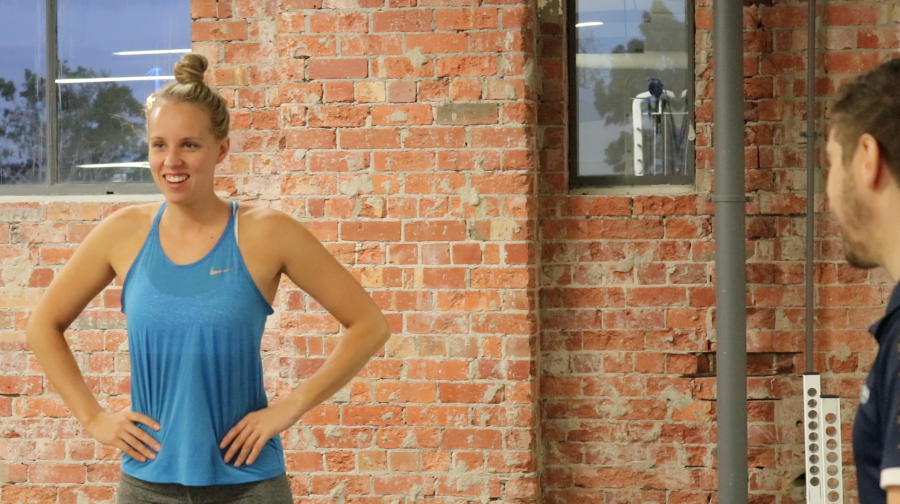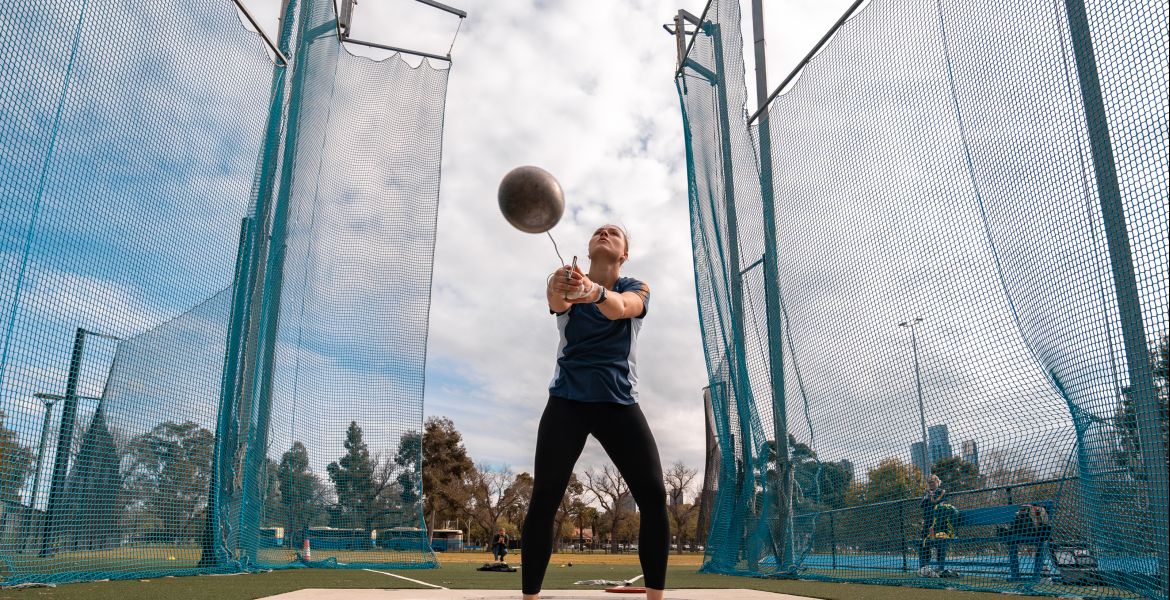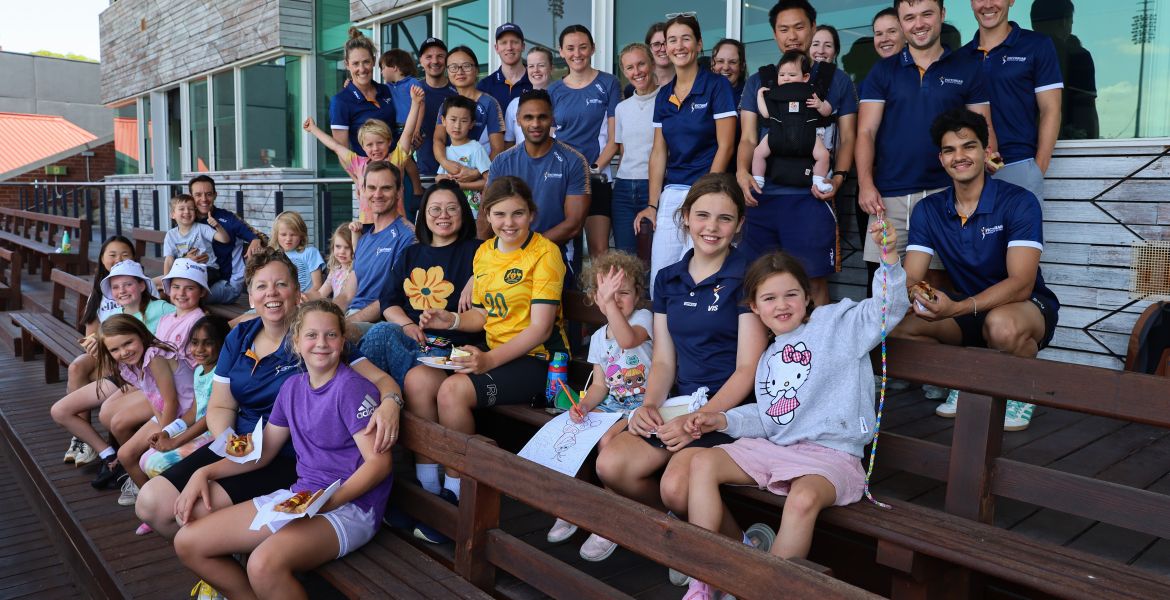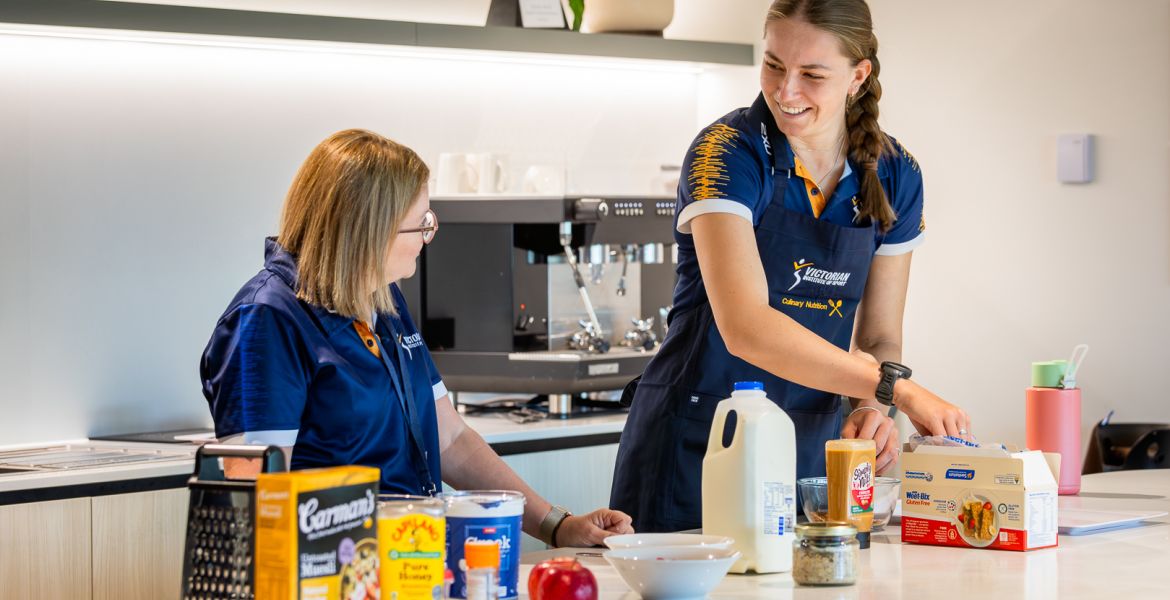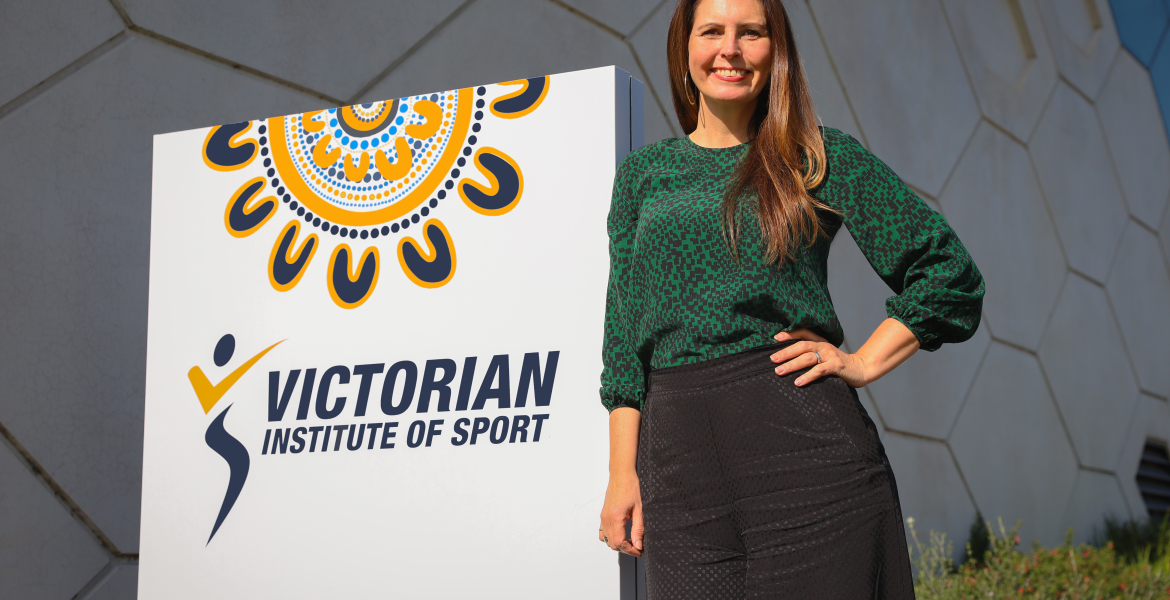Endometriosis is a painful disorder in which endometrial tissue grows outside the uterus, often in the pelvic area. It can have a devastating effect on the quality of life of sufferers due to the painful symptoms that the disease carries.
There are an estimated 200 million sufferers worldwide, and each endometriosis story is as unique as a fingerprint.
In this article, VIS all-rounder Sian Whittaker bravely shares her story and journey to diagnosis and wants others to know that they are not alone.
“For as long as I can remember I have experienced pain associated with my menstrual cycle. Pain that I thought was part of being a woman and something I had to put up with. Most of the women in my life had experienced pain and discomfort associated with their period so I thought it was normal.
Turns out it was not… there was a reason behind all this pain and suffering I had been experiencing for so long.
My journey to being diagnosed with endometriosis was long, confusing, and stressful. I thank my lucky stars there is more and more awareness surrounding this disease. If it wasn’t for all the brave women speaking out about their battles and journeys, I don’t think I would be sitting here today with a diagnosis.
I’ve been a swimmer for what feels like forever and have always loved it. Training and competing has been a big part of my life, therefore any pain and fatigue associated with my cycle has been difficult. I’ve missed training sessions due to being curled up in a ball on my bed with boiling hot water bottles on my lower abdomen hoping I didn’t throw up. My monthly periods have always been painful and fatiguing.
Over the years I have tried many different contraceptives to take away my period, hoping that would also take away the pain. The one main issue with this is synthetic hormones make me feel sluggish, tired, anxious and depressed.
Around 2 years ago was when I started to experience symptoms that were more than just bad period pain. I was on a training camp and had been struggling with increased fatigue. At this point I was on contraception, so I hadn’t had a period for a long time. We’d added some bike sessions to our pre training routine; however, I was struggling with hip pain so instead, we decided it was best I go on the cross-trainer. One afternoon on the cross trainer I fell to the floor in a ball with sharp stabbing type pain in my lower abdomen. It was pain like I’d never felt before and I was sent to the doctor who prescribed me some anti-inflammatories and told me to back off any lower body exercise as it was likely I had a hip flexor injury. I wasn’t coping well emotionally at this point and I felt I couldn’t relax or switch off.
Fast forward two months and I was struggling immensely. My hip pain hadn’t gotten any better and I was past the point of exhaustion. Racing and training had really ramped up, but I wasn’t performing well either.
I was on another camp in Brisbane except this time, I fell to the floor feeling as if I was going to faint. I was sent to hospital where I was monitored for a few hours but none of the tests flagged anything was wrong and I was sent home with no answers. After this experience I knew deep down my body wasn’t coping anymore. I was completely burnt out and needed some rest.
After a week off swimming, I tried very hard to get back into it slowly. The next few months consisted of many different tests and lots of time spent out of the water trying to figure out what was wrong. Late 2019 I was lost, confused and battered. My symptoms at this point had increased, I was experiencing stomach issues, food intolerances, lightheadedness, on and off cramps, fatigue, anxiety, depression, ovulation pain, muscle aches and more. None of my tests had given me any answers as to why I was feeling this way and I’d started to convince myself everything I was experiencing was in my head and maybe I was just stressed. This was when I made the hardest decision of my life to take a complete step back from swimming. The most devastating part was I had to come to terms with the fact my Olympic prep was over, and I no longer had the physical or mental capacity to continue to train.
Instead of allowing myself to completely slump, I distracted myself from everything that was going on and decided to put my energy into life after sport. Knowing eventually, I would make my way back into the water I wanted to spend this time sorting out a career for when I retired. I was able to continue to work on the reception desk at VIS which I will always be grateful for as I was going through such a tough time in my life. It gave me the opportunity to work a few extra hours and continue the relationships I was missing out on being away from competitive swimming. I also changed uni courses and used the few extra hours in my week to complete more subjects than usual.
During my time on the reception desk at VIS women’s health was a hot topic and they were trying to raise awareness surrounding female athletes and their menstrual cycles. It was the information sessions that all staff and athletes were invited to where I realized maybe everything I was experiencing was women’s health related.
Thankfully between the VIS sessions and more awareness surrounding endometriosis I was able to finally answer all the unknowns about what my body was going through. Endometriosis is a confusing and debilitating disease, it made me fall out of the sport I’d put so much time and effort into over many years. I’m now 23 and it took 10 years from my first period and 2 years from the onset of symptoms that were more than just period cramps for me to be diagnosed. It was the most confusing time of my life and I pat myself on the back for getting through it. I never once gave up on my gut feeling something wasn’t right.
I am currently 7 weeks post laparoscopy and hysteroscopy where my endo was diagnosed and cut out. Although I would never wish this disease upon anyone, I was full of relief post diagnosis but also exhausted from the energy I’d put into the battle. I am still learning about what works for me and how I’m going to manage this disease. Thankfully, I have an amazing support team around me who never once gave up on me, who I will forever be grateful for their unconditional support and care. The battle isn’t over, and I will have to learn to live and manage my endometriosis but I’m more determined than ever to return to swimming stronger and more resilient.
This isn’t an easy story to tell but awareness surrounding this disease and the different journeys each of us have faced is so important. The one piece of advice I give any person experiencing pain surrounding their menstrual cycle is don’t be afraid to speak up and ask if what you’re experiencing is normal. Even if it’s not endometriosis there are people that can help you manage symptoms, all you have to do is ask.”
Click HERE for more information about visit Endometriosis Australia.

